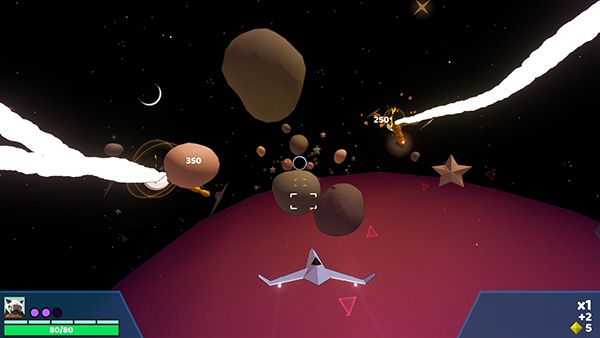Trending
Opinion: How will Project 2025 impact game developers?
The Heritage Foundation's manifesto for the possible next administration could do great harm to many, including large portions of the game development community.

Featured Blog | This community-written post highlights the best of what the game industry has to offer. Read more like it on the Game Developer Blogs or learn how to Submit Your Own Blog Post
Wait.. who's Max Discovery and why does he care?

[The GameDiscoverCo game discovery newsletter is written by ‘how people find your game’ expert & GameDiscoverCo founder Simon Carless, and is a regular look at how people discover and buy video games in the 2020s.]
Good Monday to you, folks. I’m afraid I’ve just heard that Earth is to be demolished due to an intergalactic highway construction project. So it’ll be pointless continuing this newsletter any further. Perhaps we should all just go for a pint instead?
…oh, right, that’s fictional. In reality, we’re slowly cooking ourselves, and all you studios should go sign up for Playing 4 The Planet with the UN and make concrete business changes before it’s too late. In the meantime, here’s the (back on!) newsletter..

Whenever somebody asks when you should tell everyone about your video game, hopeless rubes like me often yell: ‘Now, dammit! Now! Even if the game is the glint in the milkman’s eye, do it now!’ To some extent, that’s helpful, because many devs have a habit of prevaricating on announcing or marketing their game until it’s too late.
But veteran dev Aaron San Filippo (Race The Sun) had a very good Twitter thread the other week about this very subject, in part related to his upcoming Star Fox-ish title Whisker Squadron, and titled: “For the love of god, please don't announce your game and put a Steam page up as soon as you commit to development.”
The whole thread has more detail, but here’s some of the key points: “I've come to believe pretty strongly that while it's best to have a Steam page up for a long time, it's almost never a good idea to announce a game and put up a page for a game that looks unpolished. Here are a few reasons:
1. While the algorithm doesn't "punish" games that don't do well at launch, it *does* reward games that are hot at any given time. Games w/ a big influx of traffic get shown to more users organically in a variety of places on Steam. Quiet announcement = no free visibility.
2. First impressions matter. If potential players, press, platforms, influencers see a mediocre-looking version of your game, some of them WILL decide they're not interested (See: First impression bias). You're creating an uphill battle to change their minds.
3. Launching a Steam page gives you an influx of initial traffic as the game shows up in people's queues etc. and Steam literally gives people tools to tell it they're not interested. You want to convert as many of those as possible because some of them won't see it again!
4. There is nothing more demoralizing than launching a Steam page for a game and then watching it get 0-5 wishlists per day, knowing you need tens of thousands to have any shot at sustainable success. Being demoralized is not a good place to be in the marathon of shipping a game.”
And, as Aaron concludes: “The thing is, this is a paradox: You want your Steam page up as early as possible, but want it to look as polished as possible. The solution here, I think, is to invest heavily in your game's presentation, early in development. This is a big shift for some of us, especially me!
For my next game, I'll invest more heavily in key art, and a vertical slice that has enough polished content that I can make some gameplay footage and screenshots that look potentially shippable. A Steam page won't go live before that.”
This is very much correct from my perspective. In fact, I’ve been working with more and more devs and publishers who are thinking about how to get a ‘real-looking’ trailer for their game early in development, to start the hype.
Why? Well, we talked a bit back in 2020 about how to find player ‘evangelists’ for your game. And pretty often, they need to be able to envisage the end of the process to get excited about your work-in-progress updates. So putting your best foot forward early is vital.
We’re also wondering how the rise of game subscription services will change this, since ‘being discovered on the platform when you already own the game’ is a different caboodle than ‘need to see, wishlist then buy the game’. We’ll have to see - it’s complex.
[BTW, I think Whisker Squadron is a great game for subscription services. Why? It’s an interesting, accessible, but relatively rarely tackled subgenre. This makes it more difficult to sell based on ‘similar Steam hit games’, but a pleasant surprise for anyone getting it in a sub.]
[We’re GameDiscoverCo, a new agency based around one simple issue: how do players find, buy and enjoy your premium PC or console game? We run the newsletter you’re reading, and provide consulting services for publishers, funds, and other smart game industry folks.]
Read more about:
Featured BlogsYou May Also Like